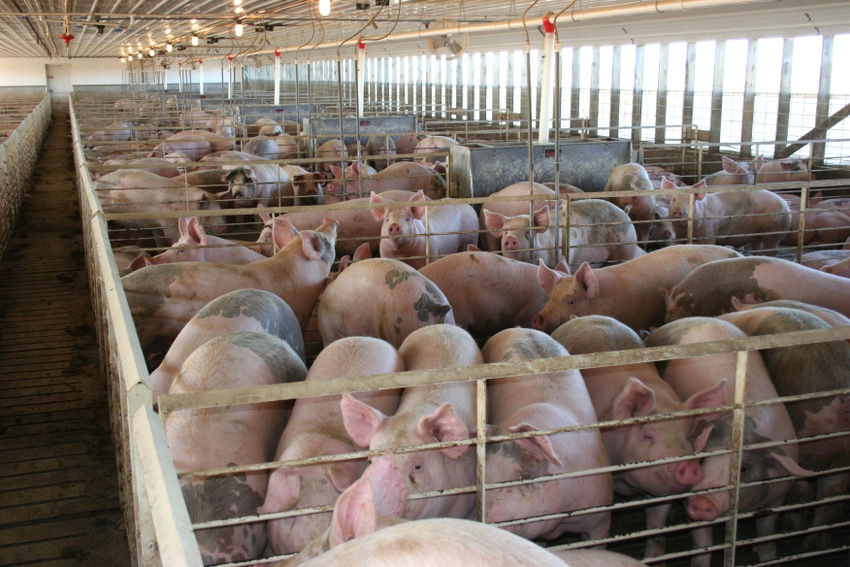USDA says official reported cases do not reflect continuing severity of situation in China.

Chinese officials have claimed that African swine fever (ASF) is being controlled and that herd numbers will return to “normal levels” in 2020, but a new "Global Agricultural Information Network" (GAIN) report from the U.S. Department of Agriculture suggests otherwise.
The report said industry sources believe the number of actual outbreaks far exceeds the numbers being reported by China's Ministry of Agriculture & Rural Affairs (MARA).
“Underreporting is rampant as government agencies at all levels face serious challenges in collecting and reporting outbreak information from swine farms," the GAIN report said. "Some farms are reluctant to report outbreaks for fear of economic losses, while others report being actively discouraged from reporting ASF outbreaks.”
Industry sources have reported to USDA that local governments have not investigated and reported ASF outbreaks for fear of bringing attention to their region. Furthermore, continued reporting of ASF outbreaks will negatively affect the government's efforts to encourage restocking.
“Regardless of the motivation, the official reported cases do not reflect the continuing severity of the ASF situation in China,” the report added. “Chinese industry sources believe the industry needs to prepare to fight ASF in the foreseeable future, although official reporting on ASF outbreaks will continue to be low in 2020 and beyond.”
Furthermore, USDA said the underreporting seriously hinders better epidemiological investigations of the disease and slows the implementation of effective countermeasures.
“Despite new licensing and certification regulations, a large number of live pigs (fattened hogs, sows and piglets) continue to be traded in an uncontrolled manner.”
The U.S. Meat Export Federation (USMEF) relayed to Feedstuffs this week that MARA has reported sporadic ASF findings, often in transported pigs, including incidences in Sichuan and Jiangsu provinces this week. Further, China Daily reported April 21 that there have been 13 new confirmed ASF outbreaks across the country recently.
One positive development for the industry, according to the GAIN report, is that newly built farms are investing in more science-based biosecurity measures, which are expected to reduce the overall transmission of diseases.
USDA reported that large companies are capitalizing on the ASF-related downturn to expand business operations and market share. This is expected to increase the percentage of hogs raised by large farms in China and result in a significant advancement of the overall industry. In particular, large Chinese feed mills reportedly have been a major source of swine recovery and expansion, because many mills already had integrated swine operations and have now expanded them.
USMEF pointed out that China’s Vice Premier Hu Chunhua recently called for solid efforts to stabilize grain output and restore hog production in order to secure the food supply.
“Hu, who made the remarks during an inspection tour to the provinces of Guangdong and Hunan, said more work should be done to secure the supply of pork, emphasizing needed efforts to accelerate the resumption of hog production, enhance prevention and control of ASF and facilitate new production capacity,” USMEF told Feedstuffs.
The bottom line, the group said, is that China’s hog prices and production data point to a continued decrease in pork production this year, following the 21% decline reported by official sources for 2019.
According to USDA, pork production in 2020 is estimated to fall by 20% from the previous year, although the Chinese Academy of Agricultural Sciences recently projected that production will fall only 8% to 39 million metric tons.
About the Author(s)
You May Also Like





